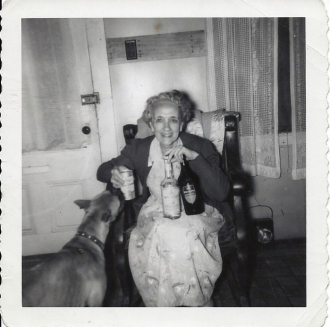As a young psychiatrist, Dr. William Rossman became frustrated when no hospital in the area would admit his patients.
So, he and a colleague started their own treatment facility in a house located at 1113 Quarrier Street in Charleston. Chartered Sept. 25, 1955 as Valley Convalescent, the facility eventually became known as Highland Hospital.
Rossman, who turned 100 on Nov. 4, recalls details of the path that led him into the field of psychiatry and the battles he fought over the years to get proper care for his patients.
He was recently honored for his contributions to psychiatric care at the Highland Hospital Gala, held Nov. 22 at Embassy Suites. He also received a governor’s Distinguished West Virginian Award and attended birthday parties held in his honor by friends and family.
“I tried to be as modest as I could,” Rossman said of the unanticipated attention.
As Rossman relaxed in the living room of his Kanawha City home on a recent afternoon, he unveiled the fascinating details of his background, unexpected entry into the profession of psychiatry, and how he manages to stay fit at age 100.
He grew up in Cairo, Ind., where his father was a dry goods merchant and his mother a bank teller. His mother struggled with diabetes and had several miscarriages before he was born.
“I was an only child,” he said.
He graduated from high school in 1932, after serving two years as class president. He then went to stay with an aunt in Evansville and attended Indiana University as he studied to become a doctor. He was serving an internship in an 800-bed charity hospital when there were “grumblings of war in Europe.”
He married a surgical nurse in 1939 when he and wife Amelia settled in Bloomington, Ind., where he was soon asked to fill a position in psychiatry. After discussing the matter with his wife, he decided to try it. In 1942, a medical unit was formed and he entered the U.S. Army where he would practice his profession.
“In 1942, psychiatrists were like hen’s teeth,” he said.
Because psychiatrists were so rare, he was in demand in various locations overseas during World War II and served 26 months of military duty before the war came to an end. While serving in the military together, he met Dr. T.P. “Pete” Mantz, who was a surgeon and the doctors became good friends.
Rossman and his wife were living in Bloomington, Ind., when Mantz called to see if the couple would consider a move to Charleston, West Virginia. Knowing his love for the outdoors, Mantz told him about the beauty of the Mountain State and how rich it was for hunting and fishing.
“Pete had rounded up five or six doctors and they all said ‘please come,’” he said.
After discussing the matter with his wife, they moved to Charleston in 1945.
“I was busy immediately,” he said. “There were no psychiatrists here.”
For the next 10 years, he tried to get patients admitted to area hospitals and, to his frustration, was always told no.
“Pete said, ‘Hell, Bill, let’s see if we can start something on our own,” he said.
A house was purchased at 1113 Quarrier St. and the facility chartered Sept. 25, 1955. Five years later, the old Boiarsky Hospital in Kanawha City was purchased at a cost of $250,000 with funds raised by the Highland Hospital Foundation. Rossman remained the chief of medical staff at Highland Hospital until his retirement in 1985.
In 2012 Highland Hospital opened its all new medical building on 56th Street in Kanawha City. The project cost $29 million.
From humble beginnings, Rossman never imagined Highland would become the 73,000-square-foot facility that it is today.
Many strides have been made in the field of behavioral medicine with the most significant being recognition, he said.
“For too many years it was on a shelf, hidden,” Rossman said.
Following retirement, he and his wife moved to South Carolina but returned to West Virginia in 1999 to be near family. He and Amelia raised three sons. David lives near his father. William Jr. is in Miami, Fla. James died in 1969 at age 26 of a cerebral aneurysm. Amelia Rossman passed away in 2005 at age 90.
Rossman, who has four grandchildren and two great grandchildren, stays busy.
He likes skeet shooting, ties fly fishing knots, and plays bridge.
He exercises regularly on equipment at his house and eats whatever he likes.
“I eliminate too many sweets,” he said. “I eat a regular diet. In every supper, I have a fresh vegetable.”
He also notes another key to good health and stress relief.
“The good Lord endowed me with a sense of humor,” he said.




